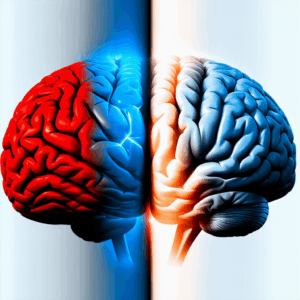January 06, 2021
Simulate typing clipboard.The Evolution of Personal Values: A Journey of Self-Discovery

As I reflect on my experiences, I’m reminded of a profound realization – our values and beliefs are not fixed entities, but rather dynamic and context-dependent. It’s a notion that has been reinforced by my encounters with diverse cultures and societies. The more I engage with different environments, the more I understand that my personal values serve as a guiding compass, allowing me to navigate complex issues and adjust my stance accordingly.
A notable example that comes to mind is my time in Uruguay, where I found myself aligning more closely with the conservative party. In contrast, during my experiences in the US, I’ve discovered that my views resonate more with the progressive party. This shift in perspective has taught me that it’s not about identifying with a particular ideology or party affiliation, but rather about embracing a set of core values that can be applied flexibly across different contexts.
The epiphany:
This epiphany has led me to develop a framework for approaching my own beliefs, one that has significantly impacted my thought process on various topics. I’ve come to realize that issues like abortion, homosexuality, and religion require a nuanced and multi-faceted approach, one that takes into account the intricacies of human experience and the complexities of societal norms.
As I’ve navigated this journey of self-discovery, I’ve also come to understand that humans are inherently flawed. We’re complex beings, driven by a mix of emotions, experiences, and biases. This realization has been incredibly liberating, as it’s allowed me to approach conversations and relationships with empathy and compassion. I’ve learned to see that people’s opinions and beliefs are often shaped by their unique experiences and perspectives, rather than being simply right or wrong.
This mindset shift has brought a tremendous amount of positivity into my life. By recognizing the gray areas between black and white, I’ve been able to engage in more meaningful conversations and build deeper connections with others. I’ve learned to listen actively, seeking to understand the underlying values and experiences that shape people’s perspectives. This, in turn, has helped me to become a more empathetic and open-minded individual.
The Benefit:
One of the most significant benefits of this mindset shift has been the ability to see multiple sides of an issue. I no longer feel constrained by binary thinking, where every topic is reduced to a simple yes or no, or right or wrong. Instead, I’ve come to understand that most issues exist on a spectrum, with nuances and complexities that require careful consideration.
For instance, when discussing topics like social justice, I’ve learned to recognize the historical and systemic contexts that shape our current reality. I’ve come to see that these issues are not simply matters of individual morality, but rather complex problems that require a comprehensive understanding of power dynamics, institutional structures, and cultural norms.
Similarly, when engaging with individuals who hold differing views, I’ve learned to approach conversations with curiosity and empathy. Rather than trying to “win” an argument or convince someone of my perspective, I seek to understand the underlying values and experiences that shape their beliefs. This has allowed me to build bridges across ideological divides, fostering a sense of community and shared humanity.
According to Dr. Brené Brown, a research professor at the University of Houston, “Vulnerability is the birthplace of love, belonging, and creativity” (Brown, 2012). By embracing our flaws and vulnerabilities, we can create space for deeper connections and more meaningful relationships.
As I continue on this path of self-discovery, I’m reminded of the importance of maintaining a balance between conviction and open-mindedness. It’s a delicate tightrope to walk, but one that ultimately allows for a more authentic and compassionate engagement with the world around me.
I’d love to hear from you – how have your experiences shaped your personal values and beliefs? What frameworks or approaches have you developed to navigate complex issues, and how do you strive to maintain a balance between conviction and open-mindedness?